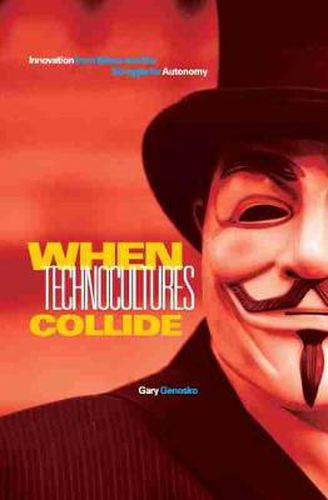Readings Newsletter
Become a Readings Member to make your shopping experience even easier.
Sign in or sign up for free!
You’re not far away from qualifying for FREE standard shipping within Australia
You’ve qualified for FREE standard shipping within Australia
The cart is loading…






This title is printed to order. This book may have been self-published. If so, we cannot guarantee the quality of the content. In the main most books will have gone through the editing process however some may not. We therefore suggest that you be aware of this before ordering this book. If in doubt check either the author or publisher’s details as we are unable to accept any returns unless they are faulty. Please contact us if you have any questions.
When Technocultures Collide provides rich and diverse studies of collision courses between technologically inspired subcultures and the corporate and governmental entities they seek to undermine. The adventures and exploits of computer hackers, phone phreaks, urban explorers, calculator and computer collectors, CrackBerry users, whistle-blowers, Yippies, zinsters, roulette cheats, chess geeks, and a range of losers and tinkerers feature prominently in this volume. Gary Genosko analyzes these practices for their remarkable diversity and their innovation and leaps of imagination. He assesses the results of a number of operations, including the Canadian stories of Mafiaboy, Jeff Chapman of Infiltration, and BlackBerry users. The author provides critical accounts of highly specialized attributes, such as the prospects of deterritorialized computer mice and big toe computing, the role of electrical grid hacks in urban technopolitics, and whether info-addiction and depression contribute to tactical resistance. Beyond resistance, however, the goal of this work is to find examples of technocultural autonomy in the minor and marginal cultural productions of small cultures, ethico-poetic diversions, and sustainable withdrawals with genuine therapeutic potential to surpass accumulation, debt, and competition. The dangers and joys of these struggles for autonomy are underlined in studies of RIM’s BlackBerry and Julian Assange’s WikiLeaks website.
$9.00 standard shipping within Australia
FREE standard shipping within Australia for orders over $100.00
Express & International shipping calculated at checkout
This title is printed to order. This book may have been self-published. If so, we cannot guarantee the quality of the content. In the main most books will have gone through the editing process however some may not. We therefore suggest that you be aware of this before ordering this book. If in doubt check either the author or publisher’s details as we are unable to accept any returns unless they are faulty. Please contact us if you have any questions.
When Technocultures Collide provides rich and diverse studies of collision courses between technologically inspired subcultures and the corporate and governmental entities they seek to undermine. The adventures and exploits of computer hackers, phone phreaks, urban explorers, calculator and computer collectors, CrackBerry users, whistle-blowers, Yippies, zinsters, roulette cheats, chess geeks, and a range of losers and tinkerers feature prominently in this volume. Gary Genosko analyzes these practices for their remarkable diversity and their innovation and leaps of imagination. He assesses the results of a number of operations, including the Canadian stories of Mafiaboy, Jeff Chapman of Infiltration, and BlackBerry users. The author provides critical accounts of highly specialized attributes, such as the prospects of deterritorialized computer mice and big toe computing, the role of electrical grid hacks in urban technopolitics, and whether info-addiction and depression contribute to tactical resistance. Beyond resistance, however, the goal of this work is to find examples of technocultural autonomy in the minor and marginal cultural productions of small cultures, ethico-poetic diversions, and sustainable withdrawals with genuine therapeutic potential to surpass accumulation, debt, and competition. The dangers and joys of these struggles for autonomy are underlined in studies of RIM’s BlackBerry and Julian Assange’s WikiLeaks website.